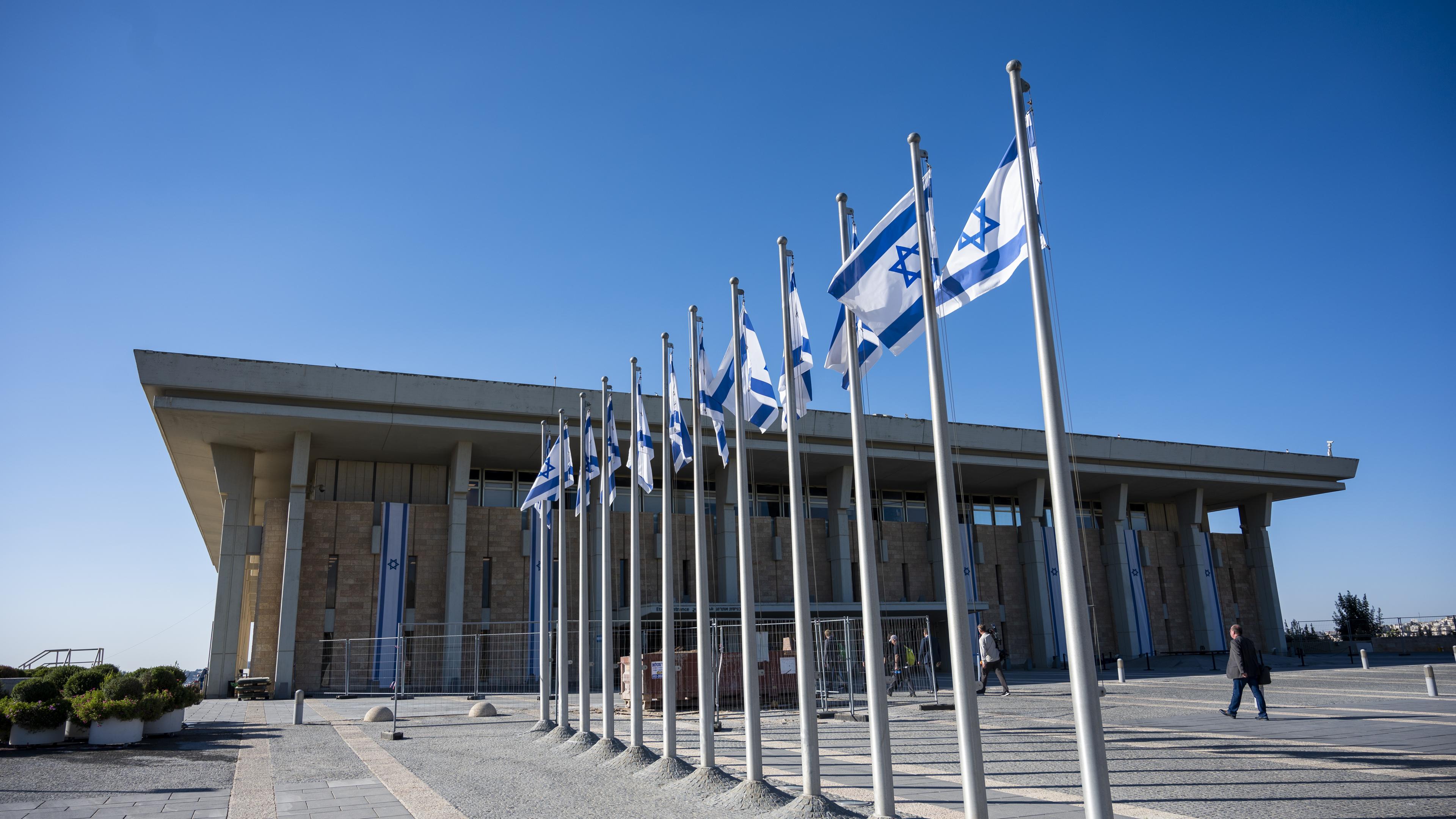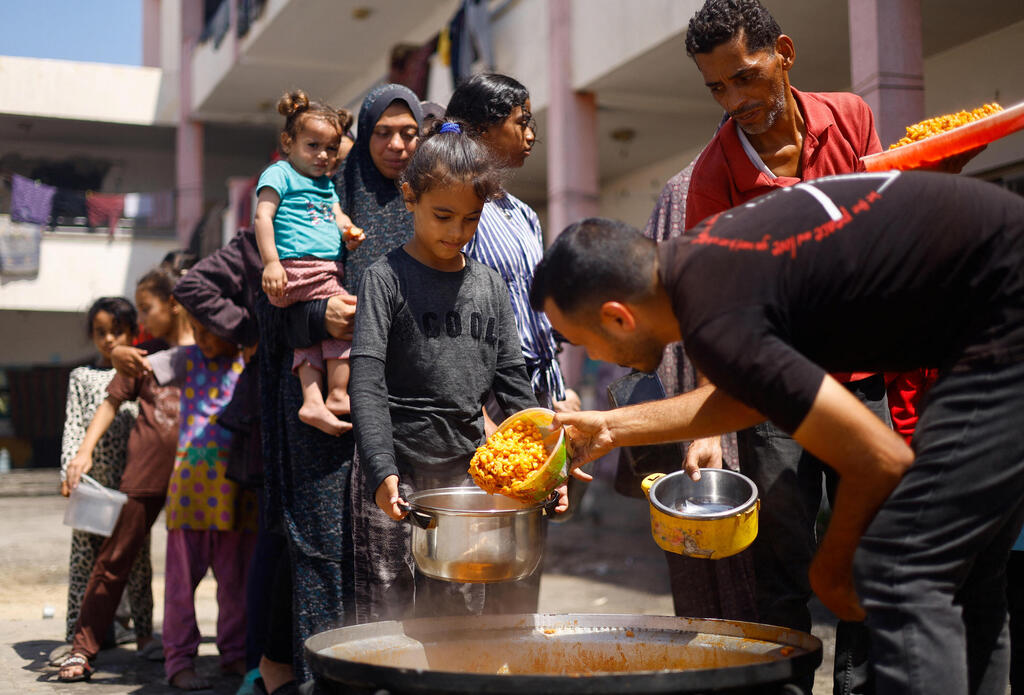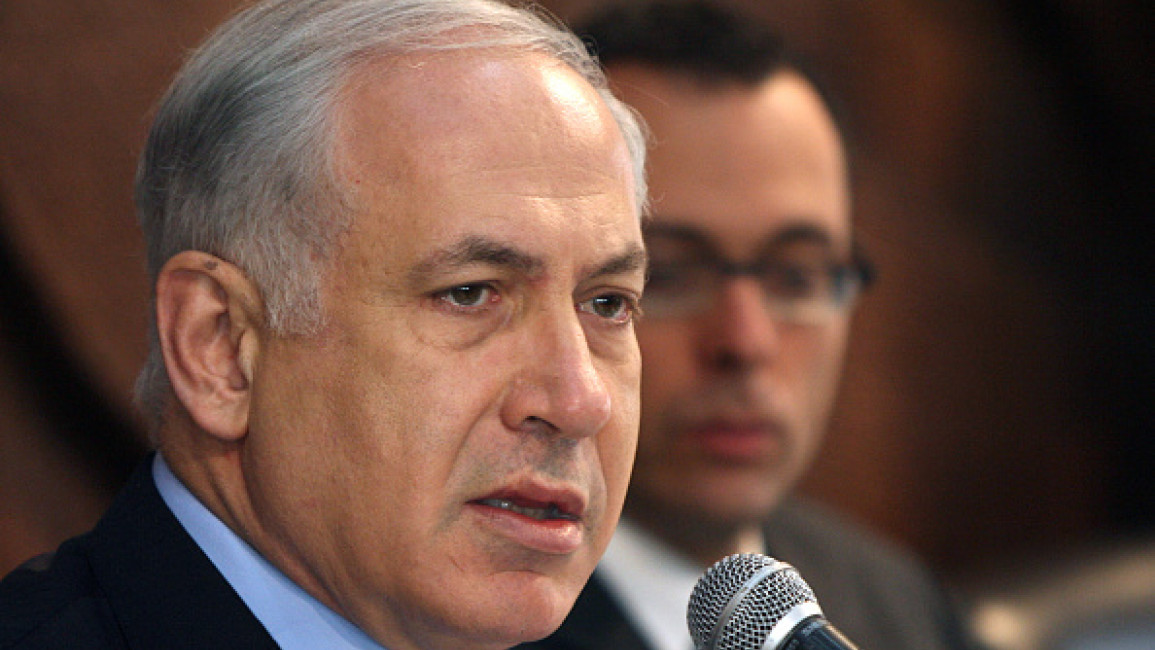Israel’s parliament backs resolution opposing Palestinian state
Israel has passed a resolution opposing establishment of independent Palestinian state

Israel’s parliament, the Knesset, has passed a resolution expressing formal opposition to the establishment of an independent Palestinian state, warning that it could serve as a base for terrorist groups.
“The Knesset is adamantly opposed to the establishment of a Palestinian state west of the Jordan river,” the legislature said in the resolution, which was adopted at a sitting in Jerusalem early Thursday with backing from 68 of its 120 members.
About three quarters of United Nations members have expressed their support for, or recognition of, Palestinian statehood — with Spain, Norway and Ireland joining the latter category in May. While the prospect of it being able to peacefully co-exist with Israel looks increasingly remote in light of the war raging in the Gaza Strip, some of Israel’s allies say a two-state solution — which has been discussed for decades — is what’s needed to advance peace in the Middle East.
The fighting erupted after the Iranian-backed militant group Hamas attacked southern Israel on 7 October last year, killing 1,200 people and taking about 250 hostages. Israeli Prime Minister Benjamin Netanyahu says the war is necessary to destroy Hamas, which is designated a terrorist organisation by the US and European Union.
Truce talks have dragged on for several weeks, and there is no indication if, or when, they may be concluded.
The Knesset’s resolution is a hardening of its previous position agreed earlier this year, which rejected that the notion that a Palestinian state could be declared unilaterally.
In 2009, Netanyahu said he’d accept a demilitarised Palestinian state as long as it recognised Israel. Negotiations fell apart and, in recent years, Netanyahu and the Israeli public have stepped away from supporting two states, a sentiment that has strengthened since 7 October.
Netanyahu is due to visit Washington next week where the Biden administration is expected to urge acceptance of a two-state solution as the way to bring Arab states into the rebuilding of Gaza and normalisation of relations between Israel and Saudi Arabia.
Secretary-General Antonio Guterres disappointed by Knesset’s decision to pass motion, says spokesman
Servet Gunerigok |18.07.2024 -

The UN said Thursday that a two-state solution cannot be voted away in response to a resolution passed by the Israeli parliament that rejects the establishment of a Palestinian state.
Spokesman Stephane Dujarric said UN Secretary-General Antonio Guterres is disappointed by the Israeli parliament’s (Knesset) decision to pass the measure.
"It's clear you can't vote away the two-state solution," Dujarric told reporters.
Guterres “has said many times he believes that's ending the occupation and negotiating a two-state solution, where Israel and an independent, democratic, contiguous, viable and sovereign Palestinian state living side by side in peace and security with a secure and recognized border based on 1967 lines, with Jerusalem as the capital of both states, is the only viable path to a sustainable peace for the people of Israel and for the people of Palestine," said the spokesman.
"So, the motion passed is, for us, clearly inconsistent with the UN resolutions, international law and prior agreements, and (Guterres) he once again, calls on the Israelis and all sides frankly, to do anything that takes us further away from the two-state solution," he added.
The resolution which passed in the Knesset by a vote of 68 - 9, said the establishment of a Palestinian state “in the heart of the Land of Israel would pose an existential danger to the State of Israel and its citizens, perpetuate the Israeli-Palestinian conflict and destabilize the region.”
The vote came as Prime Minister Benjamin Netanyahu is scheduled to go to Washington on Sunday to meet US President Joe Biden and address Congress.
The Knesset voted in February to unilaterally reject the recognition of a Palestinian state.
*Serife Cetin contributed to the story from New York
Law is used to stop work of Al Jazeera channel, Lebanon’s Al-Mayadeen TV
Abdelraouf Arnaout |18.07.2024 - TRT/AA

JERUSALEM
The Israeli parliament (Knesset) on Thursday passed an extension to a law allowing the shutdown of foreign media outlets operating in the country till November.
The law in its final reading was passed by 26-8 votes in the 120-member Knesset, according to a parliamentary statement.
The law aims to stop the work of the Qatar-based Al Jazeera channel and the Lebanon-based Al-Mayadeen TV known for its close ties to Hezbollah.
On May 5, the Israeli government decided to ban Al Jazeera, close its offices in Israel and restrict access to its website under the law, which allows the communications minister to shut down foreign networks operating in Israel and confiscate their equipment if the country’s defense minister identifies that their broadcasts pose “an actual harm to the state’s security.”
The Israeli ban was widely criticized by international and regional organizations as an assault on media freedom.
Israel, flouting a UN Security Council resolution demanding an immediate cease-fire, has faced international condemnation amid its continued brutal offensive on Gaza since an Oct. 7 attack by Hamas.
More than 38,800 Palestinians have since been killed, mostly women and children, and over 89,400 injured, according to local health authorities.
Over nine months into the Israeli onslaught, vast tracts of Gaza lie in ruins amid a crippling blockade of food, clean water and medicine.
Israel is accused of genocide at the International Court of Justice, whose latest ruling ordered it to immediately halt its military operation in the southern city of Rafah, where more than 1 million Palestinians had sought refuge from the war before it was invaded on May 6.
*Writing by Ahmed Asmar















